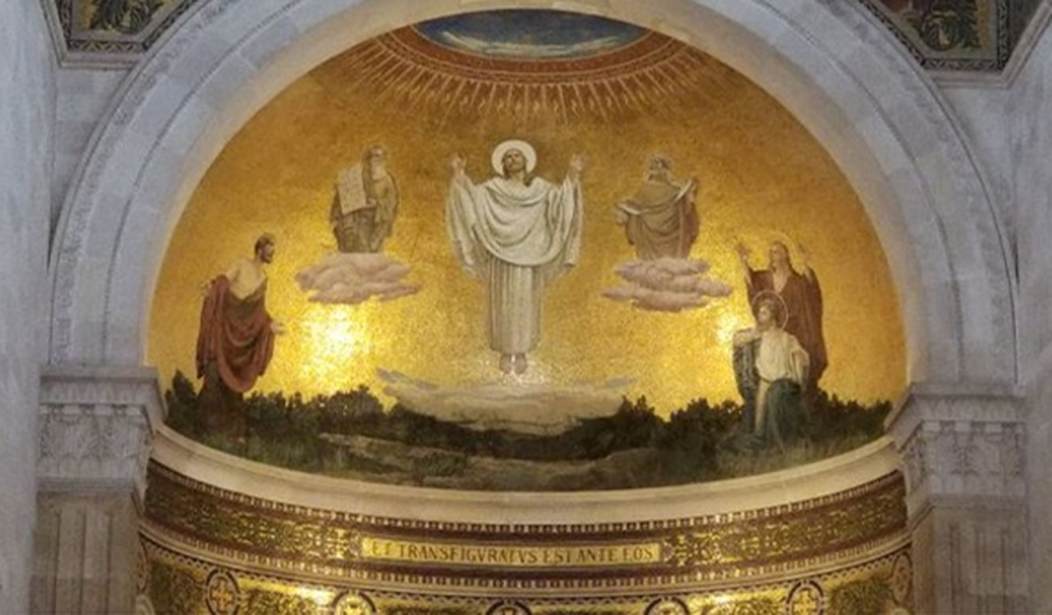Author's Note: All previous volumes of this series are here. The first 56 volumes are compiled into the book "Bible Study For Those Who Don't Read The Bible." "Part Two," featuring volumes 57-113, was published in December 2022.
Thanks for joining Part Four of our series “Moses in the New Testament.” Today, we conclude with the influence of Moses in the Scripture after Romans. If you missed the previous three studies, let’s review: Vol. 276 – Moses in the Gospels, Vol. 277– Moses in the Book of Acts, Vol. 279 – Moses in Romans.
Before we begin, here is the main theme introduction of Moses in the New Testament, which appeared in the three previous studies.
“Moses is best known as the ‘lawgiver’ because God gave him the Ten Commandments, which form the foundation of Western civilization. Furthermore, Moses’ leadership, judgment, and faith in one God are essential to understanding ancient Jewish history and tradition. That is why Jewish New Testament writers (all Jewish except Luke) reference Moses’ legacy in connection with the identity and mission of Jesus Christ, who fulfilled the Law and the prophets, proving He was the Jewish Messiah.”
Due to space limits, we focus on what I consider the most essential Moses-quoted or related verses, and this 1 Corinthians passage surely qualifies. St. Paul warns Christ’s followers about the ancient Israelites' sinful behavior and the consequences of God’s displeasure then and now:
“For I do not want you to be ignorant of the fact, brothers and sisters, that our ancestors were all under the cloud and that they all passed through the sea. They were all baptized into Moses in the cloud and in the sea. They all ate the same spiritual food and drank the same spiritual drink; for they drank from the spiritual rock that accompanied them, and that rock was Christ. Nevertheless, God was not pleased with most of them; their bodies were scattered in the wilderness. Now these things occurred as examples to keep us from setting our hearts on evil things as they did” (1 Corinthians 10:1-6).
Recommended
Paul describes how some of Moses’ flock were idol worshippers. They “indulged in pagan revelry” and “sexual immorality.” Thus, God struck down “23,000” in one day! Then Paul addressed how God helps humankind deal with sin:
“God is faithful; he will not let you be tempted beyond what you can bear. But when you are tempted, he will also provide a way out so that you can endure it” (1 Corinthians 10:7-13).
In 2 Corinthians, Paul wrote an important passage reminding Christ’s followers that, after Moses had been in God’s presence and then appeared among his people, Moses had to wear a veil over his face. The reason, as recorded in Exodus 34:29-35, was that God’s intensely bright glory reflected on Moses’ face. Paul concludes with a connection to the Holy Spirit that is Christ Jesus.
“But whenever anyone turns to the Lord, the veil is taken away. Now the Lord is the Spirit, and where the Spirit of the Lord is, there is freedom. And we all, who with unveiled faces contemplate the Lord’s glory, are being transformed into his image with ever-increasing glory, which comes from the Lord, who is the Spirit” (2 Corinthians 3:7-18). (The entire passage is linked.)
We now turn to Hebrews, where Moses is cited in several passages. The authorship of Hebrews remains unknown and, for centuries, has prompted much feisty theological debate. In Hebrews, Moses is the link between the Old and New Covenants, but Christ’s supremacy over Moses is firmly established.
In the third chapter of Hebrews, the author wrote about the comparative greatness of Moses and Jesus:
“He [Jesus] was faithful to the one who appointed him, just as Moses was faithful in all God’s house. Jesus has been found worthy of greater honor than Moses, just as the builder of a house has greater honor than the house itself. For every house is built by someone, but God is the builder of everything. ‘Moses was faithful as a servant in all God’s house,’ bearing witness to what would be spoken by God in the future. But Christ is faithful as the Son over God’s house. And we are his house, if indeed we hold firmly to our confidence and the hope in which we glory” (Hebrews 3:2-6).
There is no doubt that Jesus is “greater” than Moses, although the ancient leader received the Law directly from God and was the Almighty’s faithful servant. However, Jesus holds the place of honor as the divine Son of God.
To that point, back in Vol. 86: “Moses - His Disobedience, Death and Truth,” I wrote:
“Given that I was born and raised Jewish but accepted Christ as the Jewish Messiah in 1975, theological misinformation makes me cringe. For example, occasionally, fellow Jews equate Moses to Jesus, saying, ‘Jews have Moses and Christians have Jesus’ – a preposterous statement proven false by the Hebrew Bible.”
The following consequential passage in Hebrews references Exodus 24:4-8, “the blood of the covenant”:
“When Moses had proclaimed every command of the law to all the people, he took the blood of calves, together with water, scarlet wool, and branches of hyssop, and sprinkled the scroll and all the people. He said, ‘This is the blood of the covenant, which God has commanded you to keep.’ In the same way, he sprinkled with the blood both the tabernacle and everything used in its ceremonies. In fact, the law requires that nearly everything be cleansed with blood, and without the shedding of blood there is no forgiveness” (Hebrews 9:19-22).
Christ shed His blood for us, and through His sacrifice, we are forgiven. Therefore, that Exodus passage was a major Messianic prophecy!
The famous and inspiring Hebrews 11, often called the “faith chapter,” describes Moses’ life “by faith” in the passage Hebrews 11:23-29. (Read for extra credit.)
Finally, in Revelation 15:1-4, Moses is indirectly referenced through the plagues that facilitated the Israelites' escape from Egypt and excerpts from the “Song of Moses.” The “song” has two direct sources. First was Deuteronomy 32:1-47, which was Moses’s eloquent farewell speech shortly before his death. This “Song of Moses” is discussed in Vol. 261: The Foundational Meaning of the Rock in the Old Testament.”
The second “Song of Moses and his sister Miriam” is recorded in Exodus 15:1-21. They gleefully and faithfully sang praises to and exalted the Lord after their people were miraculously freed from Egyptian bondage. Both these “Songs of Moses” connect Old Testament imagery to the final visions in the Book of Revelation that read in part:
“I [John] saw in heaven... seven angels with the seven last plagues—last, because with them God’s wrath is completed. And I saw… those who had been victorious over the beast and its image and over the number of its name. They held harps given them by God and sang the song of God’s servant Moses and of the Lamb:
‘Great and marvelous are your deeds, Lord God Almighty. Just and true are your ways, King of the nations. Who will not fear you, Lord, and bring glory to your name? For you alone are holy. All nations will come and worship before you, for your righteous acts have been revealed’”(Revelation 15:1-4).
Remember that last verse. It is a great and powerful description of God, and why Jesus holds the place of honor as His divine Son. Amen!
Myra Kahn Adams is a conservative political and religious writer. Her book "Bible Study For Those Who Don't Read The Bible" reprints the first 56 volumes of this popular study. "Part 2,” reprints Vols. 57 –113. Order it here. She is also the Executive Director of the National Shroud of Turin Exhibit. You can join our new effort in Orlando, Florida. Contact: <Myraadams01@gmail.com>
























Join the conversation as a VIP Member